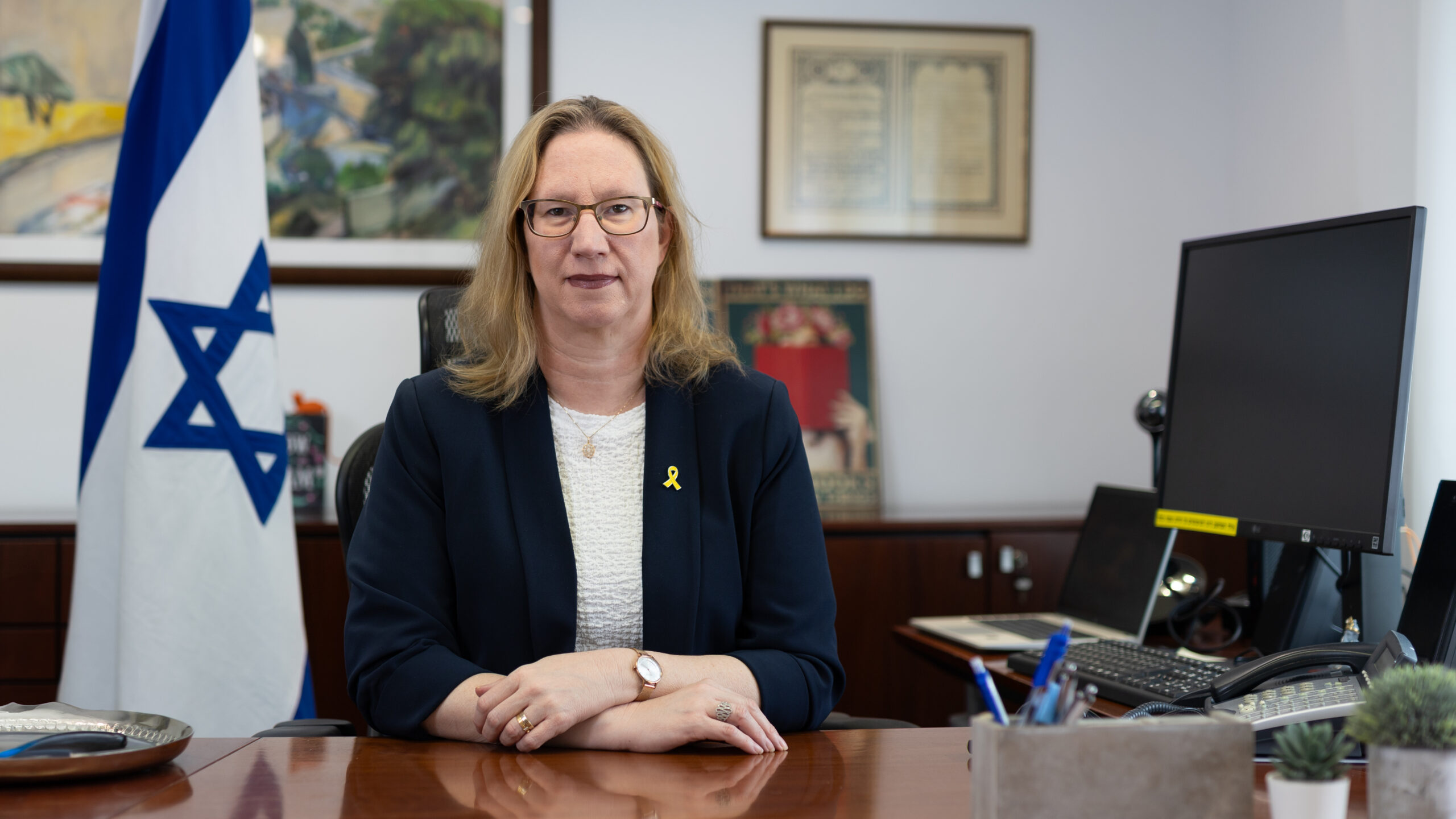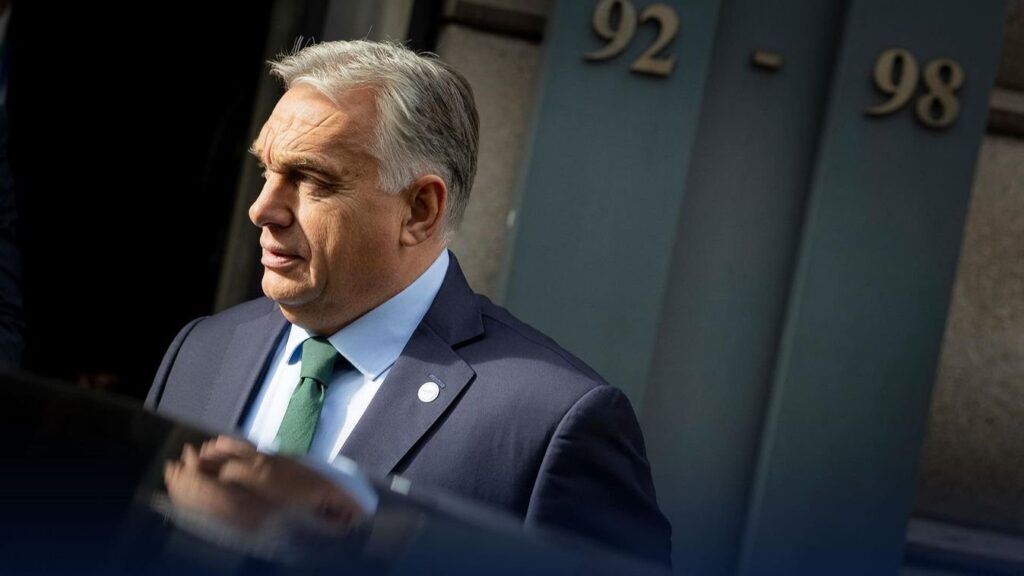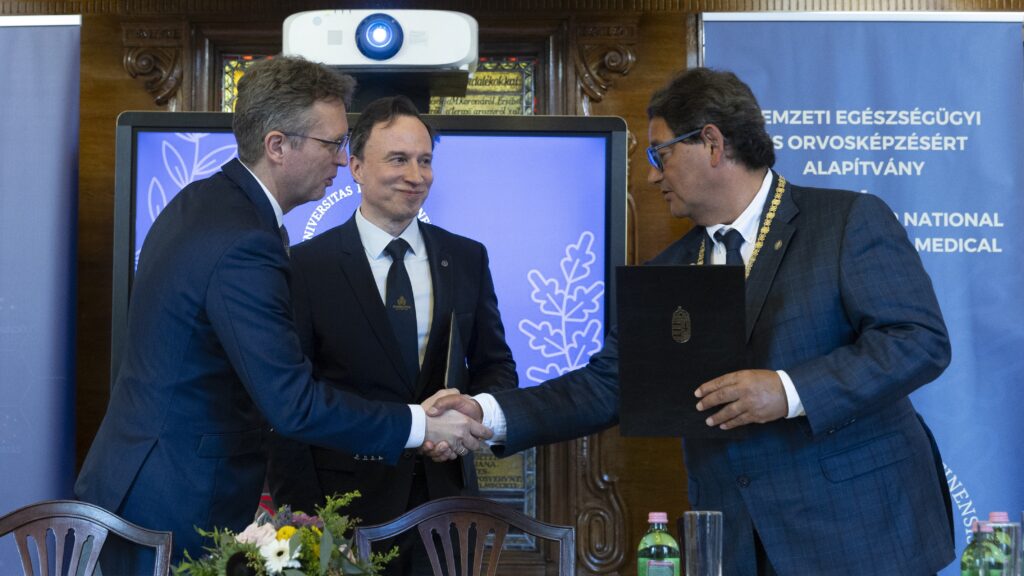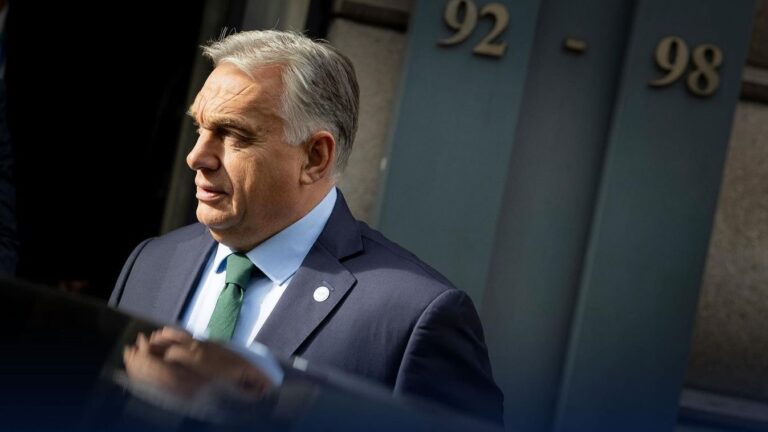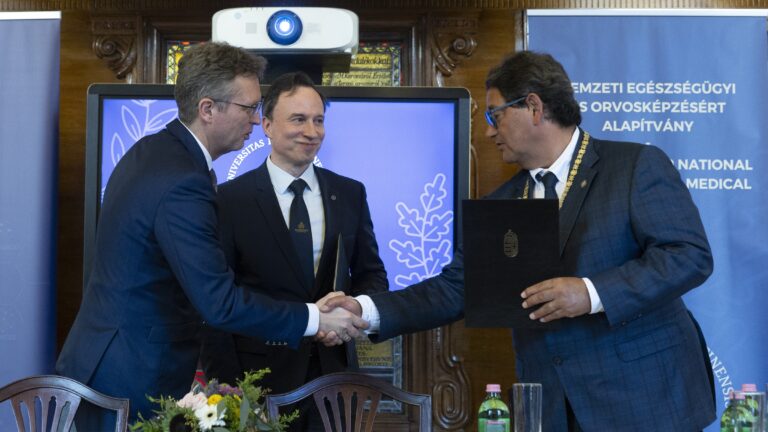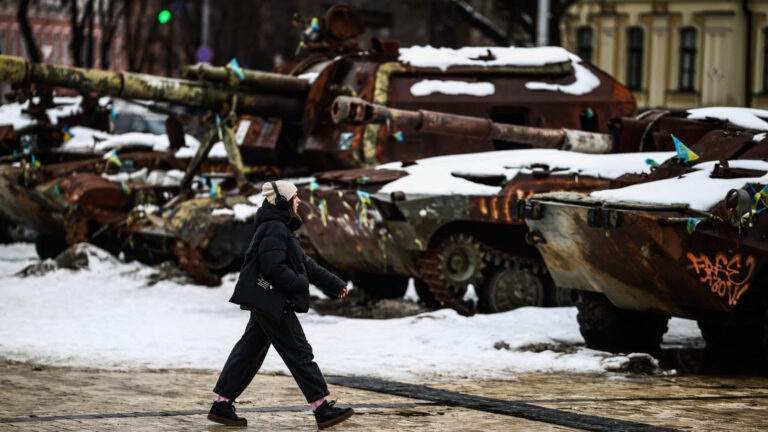Maya Kadosh is an experienced diplomat who has served at the Israeli Ministry of Foreign Affairs for more than two decades. In recent years, she has worked as Foreign Minister Gideon Saar’s Chief of Staff for Foreign Policy, and was previously a Senior Political Advisor to former Foreign Minister Yisrael Katz. Ambassador Kadosh presented a copy of her credentials to a representative of Hungary in March.
***
Two Israeli embassy staff members have been shot dead at the Jewish Museum in Washington, DC. Jews are targets even in the heart of the largest world power—is this the message of the terrorists?
I think it’s very obvious what the reason for this terror attack was: the shooter shouted ‘Free Palestine’, and he wanted to show the world that Jews cannot be safe. So, he used this pretext, but in the end of the day it’s all about antisemitism. Coming to a Jewish event, and killing a young couple in the centre of the world. Sarah Lynn Milgrim was an activist for peace. She was an intern for Tech2Peace for Humanity, and she worked for the coexistence of Israelis and Palestinians, and supported the Palestinian cause. The terrorist killed a woman who worked all her life for peace; he killed diplomats who tried to engage.
On a security scale from one to ten, how would you evaluate the safety of Jewish people in the Western hemisphere?
I think it’s very different in different places in Europe. If we look at Hungary, that is the safest place for Jews and Israelis. You can see the number of tourists who arrive to visit here. So, I would put Hungary at ten on the scale. Unfortunately, other European countries don’t protect their Jewish communities so well. First of all, it’s not an Israeli issue, it’s an internal issue: Jewish citizens, like any other citizens, should be able to go to school, they should practice their religion, but they’re afraid to do so.
‘The terrorist killed a woman who worked all her life for peace; he killed diplomats who tried to engage’
I met a rabbi from London last week when he came here to Budapest for a conference, and he told me that he’s not wearing his traditional clothes when he goes out in the street because he’s afraid. And I think this is not a normal situation, and then you see that Israelis prefer not to go to places where they don’t feel safe. For example, in Paris—it was once one of the top tourist destinations for Israelis, but it’s no longer the case. So, I think leaders in Europe should take it much more seriously, and they should look at the issue not as a political one, because it’s not a political issue. We see this performance again and again with Free Palestine, but it’s just a slogan; what stands behind it is usually pure antisemitism.
Is Budapest safe for the Israelis, for the Jews?
Budapest is considered to be one of the safest capitals, or the safest capital for Israelis to come to. We have over a quarter of a million tourists each year coming here. If you see them in the street, I guess you can go to Váci Street, and see that Israeli people are not afraid of wearing their traditional clothes. We see women who cover their heads, men wear their kippah, there are a lot of kosher restaurants open, the synagogues are open, and you don’t see any major security operation. That’s because of the zero tolerance policy that Prime Minister Viktor Orbán introduced.
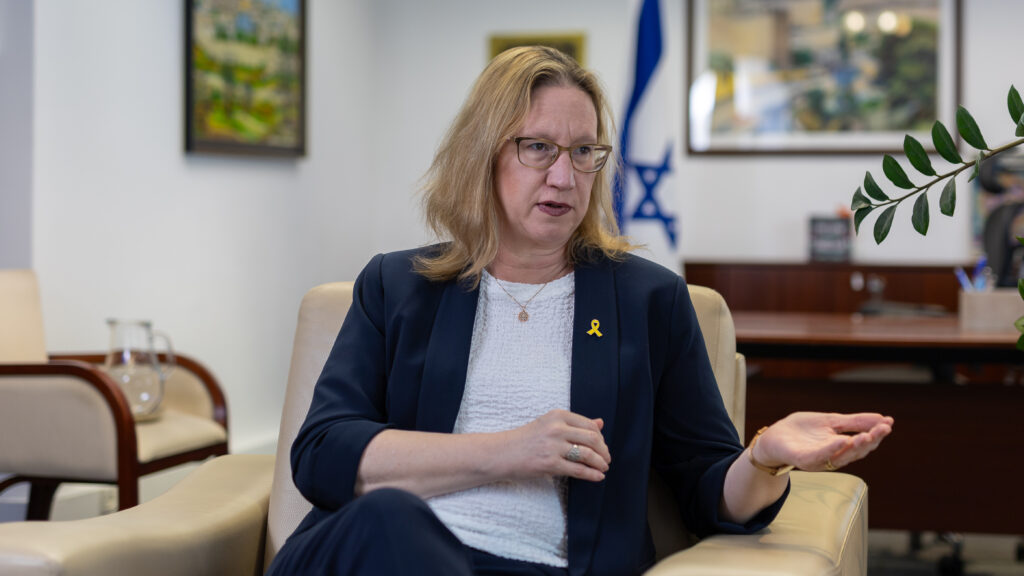
All is connected to what happens in Gaza: Israel imposed a blockade on international aid in March, and it causes water and food shortages, acute sanitation problems. Is it a sustainable situation?
I think the Gaza issue is a cover to something that is very deep in the traditional antisemitic sentiments all over the world, or the Muslim sentiment against Israel all over the world. Israel, in the ceasefire, let 600 trucks of food drive into Gaza every day, so there’s a sufficient amount of food, and we follow that ourselves on a daily basis. And we see there is a need to get more food to Gaza, and this week, a lot of food, baby food, arrived in Gaza. But you know who steals this food? Hamas. Hamas, on the one hand, says Israel uses starvation as a weapon against Palestinians, but who really steals the food from the mouths of the babies and of the people that need it most is Hamas. They take it and sell it to the public—sometimes at three or four times the market price. Not to say that they are getting everything for free. So, they should give it for free to the population. They don’t do that, so instead of using it to build a new life for their people, they choose again to build the infrastructure of terror.
Israel tries to put pressure on Hamas to release the remaining Israeli hostages. And because of the conditions, there are protests against Hamas inside Gaza. What do you hope for? Can there be a turning point when the Gazans themselves get rid of Hamas?
I don’t think there is such a hope. I think there is really an issue of how we can get rid of Hamas, because we understood that their main source of income was the humanitarian aid, and the decision to stop the humanitarian aid was purely to weaken Hamas. I don’t think the population in Gaza has the power now to fight Hamas separately from what’s going on there, but we definitely can keep fighting against Hamas ourselves.
Some elements of the Israeli society and the political spectrum are tired of this war, and openly criticize the IDF’s actions in Gaza. A poll by Israel’s Channel 12 says that only 25 per cent of Israelis support the fighting and the occupation of Gaza.
I think the war has two goals. One is to make Hamas release the hostages, and the other is to eliminate Hamas. And I think over 70 per cent of the Israeli population supports both goals. The difference comes when we think of what we should do first, and this is the thing your question reflects on.
‘Their main source of income was the humanitarian aid, and the decision to stop the humanitarian aid was purely to weaken Hamas’
I think the majority of the population supports that, first, we need to get back the hostages, even if that means that, for now, we need to stop the war. But I think also the majority of the population that was asked is not willing to live with the threat of Hamas. So, it depends on how you phrase this question, and I think it’s a very complicated question. I think the vast majority of the Israelis think that immediately after releasing the hostages, we should go back to fighting. I think on the issue of Jewish settlements in Gaza, that’s where probably only a minority of the people support them.
Is it possible to eliminate Hamas?
I think, yes. I think it should be a combination of military operations and diplomacy. Without the precise operation of the IDF, targeting the leaders of Hamas, eliminating them, and targeting the tunnel infrastructure, we won’t be able to go to the negotiation table. But if we look at the future, who will control the Gaza Strip, we won’t see Hamas there.
What is going on at the Israeli borders close to Lebanon and Syria? And how is the security situation in the West Bank?
If we look at Lebanon, the government is taking major steps to control the whole country, including targeting Hezbollah’s operations, especially when it’s close to the border. We see that many Western countries are helping Lebanon to rebuild its army. We see that they are fighting against the flow of money and smuggling of weapons into the country, and we are very hopeful that this situation will stay on course. Hezbollah is still a threat, but they have less and less capacity to operate.
‘If we look at the future, who will control the Gaza Strip, we won’t see Hamas there’
About Syria: Israel is not as excited about Syria as Europe. President Abu Mohammad al-Julani says all the right things, but unfortunately, without doing the right things. We see that the Alawite family and Christian minorities are being targeted. We think we should not be so fast in removing sanctions, because in the end of the day, these people have been jihadists like two minutes ago, and it’s nice that they put suits on, but still, we need to see that what they say is what they mean and what they do. And Israel must take steps to check security on our border, and we have the IDF forces there, we eliminate some of the threats targeting mainly the Druze community.
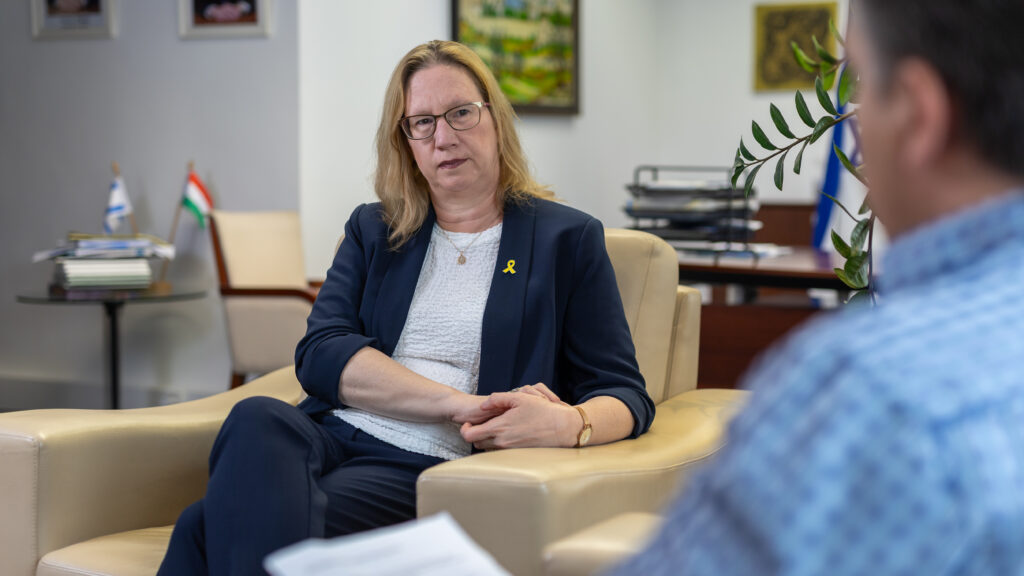
And what about the West Bank?
The Palestinian Authority is extremely weak. I think that if we can learn one lesson from the 7 October attack, it is that we need to take seriously what they say: at that time, they said that they wanted to kill us. They didn’t mean to hurt us; they meant to eliminate us. You have to see it in the regional context: Iran sent loads of weapons to Hezbollah and Hamas, and they keep smuggling weapons through the Jordanian border into Judea and Samaria, and they try to help the local terrorist organizations prepare an attack similar to what we saw from Hamas. And this is a reality that Israel cannot accept. So, under the circumstances, the two-state solution is an illusion. There’s no trust, no ability. We see that the Palestinian Authority can hardly sustain itself. We see the incitement in the schoolbooks; they still haven’t removed it from the textbooks, even though the European Union set standards requiring that in order to continue receiving EU funding for printing them.
Still, even Israel’s allies stick to the two-state solution, and even they criticize Israel’s Gaza policy: Britain’s Keir Starmer just did that, and the EU says it’s reviewing its association agreement with Israel. Aren’t you afraid of being isolated on the international stage?
I think, at this point in time, our security comes first. It’s nice to have an association agreement with Europe. It’s nice to have our allies smile at us. But you know what? They smiled at us on 7 October. When we were on the ground, very weak, we couldn’t help ourselves. Then we had all the visits and all the supporting words.
‘We need to take seriously what they say: at that time, they said that they wanted to kill us’
It’s more important to be strong and defend ourselves. If that’s the price we need to pay in Europe for the meantime, that’s the price we will pay. From our experience, we have had many wars, and when we are strong, in the end of the day, all these countries come and stand by our side. Because they need our defence system, they need the benefits of our economy. They understand in the end of the day that Israel is the only democracy in the Middle East. Who will they work with? With the terrorists in the Gaza Strip, or with the terrorists in the West Bank?
One aspect of the international isolation is the arrest warrant by the International Criminal Court against Benjamin Netanyahu. Hungary withdrew from the ICC on that day when Netanyahu arrived in Hungary for a state visit. Was it a gesture of a friend?
I think it’s more than a friendly gesture. I think this is a pure moral clarity from Prime Minister Orbán’s side that he understands what’s right and what’s wrong. We cannot have democracy, going to a trial for defending themselves. Looking into the future, if America, Hungary or any other country would like to defend themselves, they can find themselves in the same situation where their enemy can bring them to court, and the court can decide against them. And this is something that Hungary didn’t want for themselves first of all, and of course, this moral stand is really important to our relations as well.
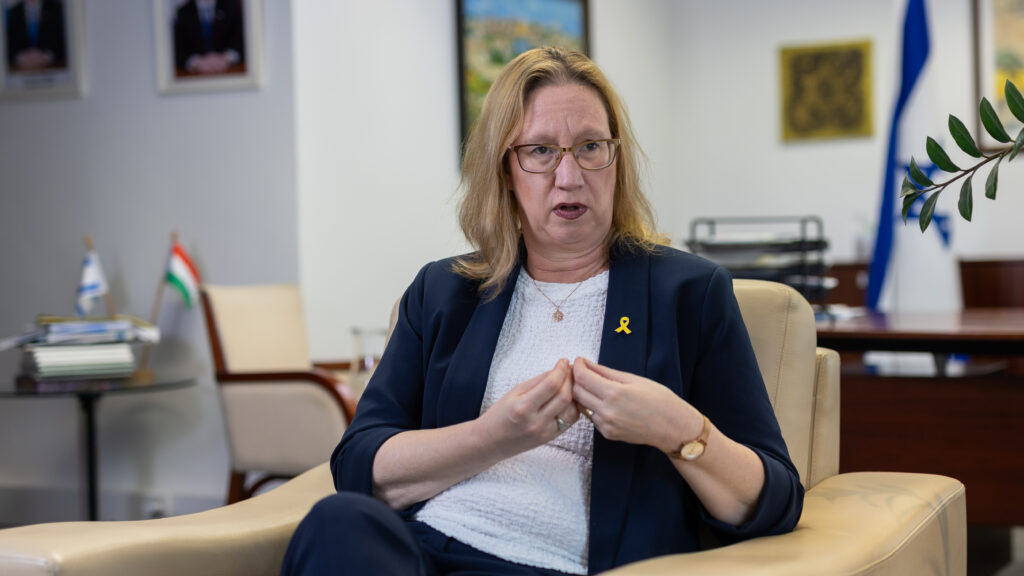
The relationship between Israel and Hungary is very good. The relation between Fidesz and Likud, and between the two Prime Ministers, is excellent. Why is Hungary important for Israel? And why do you think Hungary tries to be friends with Israel?
The friendship with Hungary is really important for Israel, primarily because of the relations with the European Union. Hungary sometimes stands as a sole voice in the European Union against sanctions, for example, against the settlers. The US doesn’t sanction them, and there’s no reason for the European Union to take a different policy from the Americans when it comes to the issue of the association agreement. So, for Israel, the relations with Europe are very important.
‘I think this is a pure moral clarity from Prime Minister Orbán’s side that he understands what’s right and what’s wrong’
Also, the standing in the UN. Sometimes, you know, the UN walks in such mysterious ways, but sometimes in friendly ways. We always count on Hungarian friends when it comes to issues at the UN. And of course, many Israelis come to Hungary to take a break, to feel safe, and that’s very nice. And I think Prime Minister Orbán, although I don’t pretend to know him well, but I think that his commitment to the issue of protecting the Jewish community and fighting antisemitism is something that comes from his heart, it’s something real. It’s not only a policy or a political issue, it’s something that is personal. And he understands that the anti-Israeli sentiment is not really anti-Israel, but it’s a new wave of antisemitism. And of course, both nations share a lot of common values when it comes to family values, religious values, defending democracy and freedom of speech.
Do you have any family ties, or did you have any personal connections to Hungary prior to your diplomatic duties?
Unfortunately, no, even though I love Hungarian food. My family came from Poland; my grandparents are Holocaust survivors. So, there are similar stories, I think, in my family to what happened here, in Hungary.
What were the first experiences when you arrived here? What was the first impression of the country?
First of all, how frank it is. I arrived just before the Prime Minister’s visit; I had to come earlier because of this visit. It was nice to see how quickly I was welcomed, how they took the extra mile to let me present my credentials before the visit so I could participate. And it’s a beautiful country. And I feel that people really want to get to know Israelis, they care about Israel, and they understand the struggles we are fighting.
‘The anti-Israeli sentiment is not really anti-Israel, but it’s a new wave of antisemitism’
By Israeli diplomatic standards, is Hungary a difficult post for an Israeli Ambassador?
No, it’s one of the best. Because of the friendship between the governments. Obviously, this is a European country, close to Israel, and the government is very friendly, so it’s considered to be a very good post here. I think we were over 20 people that competed for this job. I feel very blessed to be here.
Many positive developments have happened during the last decade in the Israeli–Hungarian relationship. What is your plan for your diplomatic mission in Budapest? What areas do you plan to develop in the next years?
If I look at the government-to-government relations, it will be mainly the defence. The Israeli ability is much more immense than it was before the war. And there is the crisis in Ukraine, with the issue of the defence budget in the EU, so that will be a very important topic. The other one will be the people-to-people connection, the public diplomacy: we need to make sure that the younger generations that are very connected to what’s going on in Europe will have the same sentiments towards Israel. And the economy would be the third: I think people here need to feel the benefits of these relations, and there’s a lot of space for cooperation from agriculture to the automotive industry and innovation. I want to explore these opportunities and show people in Israel as well that it’s not only friendship between the countries, but it’s also between the people, the companies and the economies.
Related articles:

